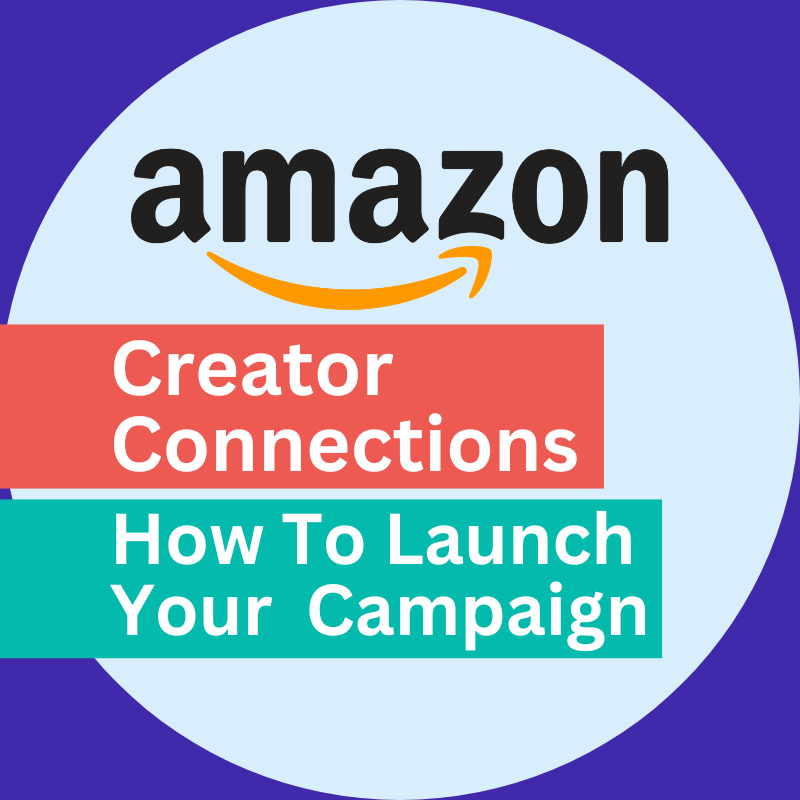Many outdoor retailers are looking for ways to increase traffic to their websites through development of an affiliate program. Working with an affiliate management company with experience in the outdoor industry can streamline the process and create the path for long-term success in the channel.
There has been a recent surge of companies in the outdoor industry jumping into affiliate marketing. Because there can be both short-term and long-term costs associated with a program, it is advisable to start with a review of the goals for the company, the retail website, the channel contribution and what management of the affiliate program should look like.
A top affiliate management company will advise on whether the outdoor retailer is primed and ready to start an affiliate marketing program. Once that decision has been made, there are a few steps to launching an outdoor affiliate program that we'll review here.
How to select the right network
The types of products and services being offered along with the marketing goals and budget of the merchant will determine the right affiliate network to work with. In most cases a single (1) network is all that you need if the program has proper management. We break networks down into three types of categories; direct, "CPA", and traditional affiliate networks.
A direct affiliate program can be administered from the merchants website using various off-the-shelf third party tools. Many shopping carts have some type of affiliate referral feature built in. This type of arrangement can sometimes be sufficient for merchants when they are working with a small handful of partners. By working directly with a partner website to run ads, you have potentially reduced costs associates associated with the next two options. A few of the downsides to a direct program are the limitations of the software being used, ease of use, trust and accounting. Processing of affiliate commission payments through a direct program often falls to the merchant and the larger the program becomes, the bigger headache this can become. Professional affiliate marketers are looking for timely payments and wary of direct programs for this and the fear that tracking could fail in these types of systems. Affiliate marketing companies that work with several merchants are also reluctant to work with numerous systems.
Some direct programs rely on a tracking parameter for tracking and thus allow for a direct link to be created for the benefit of the websites SEO. Many merchants want this SEO value from the affiliate link. Who wouldn't? But it isn't advisable for those serious about there affiliate program. While you will get a handful of affiliates to participate, the majority of affiliate marketing companies are looking for the higher reliability of the next two options, which primarily rely on redirect cookie pixel tracking. And the answer to the question of, "do affiliate links have SEO value?" with regard to these types of programs is short answer, "no". The link juice is being lost in the redirect. I've lost my mojo! If you are serious about affiliate, do affiliate. And if you are serious about SEO, do SEO. There is more to explore here with regards to bloggers, but that's for a separate piece.
If you are looking for a solid platform, albeit pricey, for a "direct" program, then Impact Radius is a good option. There are many more cheaper options available for smaller retailers.
Somewhere in between, encompassing, overlapping, are the "CPA Networks". All of these affiliate marketing companies that we are talking about today work in some form of Cost Per Action (Sometimes Cost Per Acquisition). As a matter of differentiation from the larger traditional network that come next CPA Networks have smaller groups of niche publishers. With this scenario, you are now contracting with a network that will promote your offer. The types of networks usually look for a flat dollar payout per action and skim as much of the top as they can before passing it onto the individual publishers that have signed up to receive alerts from them. CPA Networks are numerous, but limited for the outdoor industry.
Traditional affiliate networks encompass the lion's share of affiliate marketing and provide a host of additional features. The main affiliate networks in the US are Commission Junction, LinkShare, AvantLink and ShareaSale. These networks provide trusted tracking, reporting, image hosting, payment processing and a large network of affiliates.
 Your affiliate management company will make a recommendation for network selection based on a number of criteria and with input of the goals for the program. Who the target audience is for your products, the range of products for sale and the pricing plan for products all play in. Many outdoor retailers with gear find their way to AvantLink because of the concentration of outdoor industry affiliates. LinkShare can be a good fit for fashion/apparel merchants. Were you going to wear that rain jacket on a hike or to the mall?
How to structure payouts:
The affiliate commission on a sale can usually be structured as either a percentage of the sale or a flat dollar amount per order. If you have consistent average order values based on a limited price range of products, then a flat dollar amount per order can an appealing payout structure for attracting publishers. Companies that have products on a wide range of price points should first determine margins and an acceptable range for commission. Your management company should conduct a competitive analysis to determine if your range will fit in with other outdoor industry affiliate programs. The additional factor to include when calculating acceptable margin is what promotions, if any, will be running. Commission is usually calculated on the subtotal, after any discounts, and not including shipping.
When determining a commission structure for your affiliate program, it is good to consider how profitable your program will be for your partner publishers. This will determine how long they stay with you may be a factor in the amount of media space they dedicate to promoting your site. Know your Conversion Rate (CR) on site and back into an Earnings Per One Hundred Clicks (EPC) as well as a Cost Per Thousand (CPM). If you were the owner of the website with your companies ads on it, would you see that as an acceptable affiliate payout?
How to set up program restrictions:
There are different restrictions you can put in place on your affiliate program to limit the allowed and not-allowed activities and promotional methods being used by your publishers. Remember enforcement of these restrictions will require some degree of management. Some of the typical restrictions that outdoor retailers should review are; coupon policy, incentivized traffic, email use and paid search restrictions.
Unless, you are selling direct without any resellers, most online retailers in the outdoor industry have singed a MAP pricing agreement. This, as well as courtesy to resellers if you are the manufacturer, may cause you to restrict coupon usage if they exist in your cart. If you have a large email list of your own you may also want to place email restrictions on publishers in order to stay CAN-SPAM compliant.
Paid Search is usually the area where restrictions come into play for outdoor retailers with affiliate programs. In most cases you will want to restrict keyword bidding on your own brand terms. You can set this up for exact match on a specific term or on a broad match to catch brand + term bidding. Your management company can monitor these keywords to enforce a paid search policy.
How to implement affiliate tracking:
The affiliate tracking system used for the majority of retailers in the outdoor industry relies on a cookie / pixel tracking system. Your affiliate management company will assist in creating a tracking pixel that is placed on the confirmation page after checkout. The pixel will dynamically populate with the required fields needed for your program. At a minimum, a unique order id is required. A subtotal price is usually also included. Extra fields may include, SKU, quantity, discount, etc.
In our next post, we'll talk about identifying and engaging outdoor affiliates as well as turning outdoor bloggers into revenue generating affiliates.
Your affiliate management company will make a recommendation for network selection based on a number of criteria and with input of the goals for the program. Who the target audience is for your products, the range of products for sale and the pricing plan for products all play in. Many outdoor retailers with gear find their way to AvantLink because of the concentration of outdoor industry affiliates. LinkShare can be a good fit for fashion/apparel merchants. Were you going to wear that rain jacket on a hike or to the mall?
How to structure payouts:
The affiliate commission on a sale can usually be structured as either a percentage of the sale or a flat dollar amount per order. If you have consistent average order values based on a limited price range of products, then a flat dollar amount per order can an appealing payout structure for attracting publishers. Companies that have products on a wide range of price points should first determine margins and an acceptable range for commission. Your management company should conduct a competitive analysis to determine if your range will fit in with other outdoor industry affiliate programs. The additional factor to include when calculating acceptable margin is what promotions, if any, will be running. Commission is usually calculated on the subtotal, after any discounts, and not including shipping.
When determining a commission structure for your affiliate program, it is good to consider how profitable your program will be for your partner publishers. This will determine how long they stay with you may be a factor in the amount of media space they dedicate to promoting your site. Know your Conversion Rate (CR) on site and back into an Earnings Per One Hundred Clicks (EPC) as well as a Cost Per Thousand (CPM). If you were the owner of the website with your companies ads on it, would you see that as an acceptable affiliate payout?
How to set up program restrictions:
There are different restrictions you can put in place on your affiliate program to limit the allowed and not-allowed activities and promotional methods being used by your publishers. Remember enforcement of these restrictions will require some degree of management. Some of the typical restrictions that outdoor retailers should review are; coupon policy, incentivized traffic, email use and paid search restrictions.
Unless, you are selling direct without any resellers, most online retailers in the outdoor industry have singed a MAP pricing agreement. This, as well as courtesy to resellers if you are the manufacturer, may cause you to restrict coupon usage if they exist in your cart. If you have a large email list of your own you may also want to place email restrictions on publishers in order to stay CAN-SPAM compliant.
Paid Search is usually the area where restrictions come into play for outdoor retailers with affiliate programs. In most cases you will want to restrict keyword bidding on your own brand terms. You can set this up for exact match on a specific term or on a broad match to catch brand + term bidding. Your management company can monitor these keywords to enforce a paid search policy.
How to implement affiliate tracking:
The affiliate tracking system used for the majority of retailers in the outdoor industry relies on a cookie / pixel tracking system. Your affiliate management company will assist in creating a tracking pixel that is placed on the confirmation page after checkout. The pixel will dynamically populate with the required fields needed for your program. At a minimum, a unique order id is required. A subtotal price is usually also included. Extra fields may include, SKU, quantity, discount, etc.
In our next post, we'll talk about identifying and engaging outdoor affiliates as well as turning outdoor bloggers into revenue generating affiliates.
 Your affiliate management company will make a recommendation for network selection based on a number of criteria and with input of the goals for the program. Who the target audience is for your products, the range of products for sale and the pricing plan for products all play in. Many outdoor retailers with gear find their way to AvantLink because of the concentration of outdoor industry affiliates. LinkShare can be a good fit for fashion/apparel merchants. Were you going to wear that rain jacket on a hike or to the mall?
How to structure payouts:
The affiliate commission on a sale can usually be structured as either a percentage of the sale or a flat dollar amount per order. If you have consistent average order values based on a limited price range of products, then a flat dollar amount per order can an appealing payout structure for attracting publishers. Companies that have products on a wide range of price points should first determine margins and an acceptable range for commission. Your management company should conduct a competitive analysis to determine if your range will fit in with other outdoor industry affiliate programs. The additional factor to include when calculating acceptable margin is what promotions, if any, will be running. Commission is usually calculated on the subtotal, after any discounts, and not including shipping.
When determining a commission structure for your affiliate program, it is good to consider how profitable your program will be for your partner publishers. This will determine how long they stay with you may be a factor in the amount of media space they dedicate to promoting your site. Know your Conversion Rate (CR) on site and back into an Earnings Per One Hundred Clicks (EPC) as well as a Cost Per Thousand (CPM). If you were the owner of the website with your companies ads on it, would you see that as an acceptable affiliate payout?
How to set up program restrictions:
There are different restrictions you can put in place on your affiliate program to limit the allowed and not-allowed activities and promotional methods being used by your publishers. Remember enforcement of these restrictions will require some degree of management. Some of the typical restrictions that outdoor retailers should review are; coupon policy, incentivized traffic, email use and paid search restrictions.
Unless, you are selling direct without any resellers, most online retailers in the outdoor industry have singed a MAP pricing agreement. This, as well as courtesy to resellers if you are the manufacturer, may cause you to restrict coupon usage if they exist in your cart. If you have a large email list of your own you may also want to place email restrictions on publishers in order to stay CAN-SPAM compliant.
Paid Search is usually the area where restrictions come into play for outdoor retailers with affiliate programs. In most cases you will want to restrict keyword bidding on your own brand terms. You can set this up for exact match on a specific term or on a broad match to catch brand + term bidding. Your management company can monitor these keywords to enforce a paid search policy.
How to implement affiliate tracking:
The affiliate tracking system used for the majority of retailers in the outdoor industry relies on a cookie / pixel tracking system. Your affiliate management company will assist in creating a tracking pixel that is placed on the confirmation page after checkout. The pixel will dynamically populate with the required fields needed for your program. At a minimum, a unique order id is required. A subtotal price is usually also included. Extra fields may include, SKU, quantity, discount, etc.
In our next post, we'll talk about identifying and engaging outdoor affiliates as well as turning outdoor bloggers into revenue generating affiliates.
Your affiliate management company will make a recommendation for network selection based on a number of criteria and with input of the goals for the program. Who the target audience is for your products, the range of products for sale and the pricing plan for products all play in. Many outdoor retailers with gear find their way to AvantLink because of the concentration of outdoor industry affiliates. LinkShare can be a good fit for fashion/apparel merchants. Were you going to wear that rain jacket on a hike or to the mall?
How to structure payouts:
The affiliate commission on a sale can usually be structured as either a percentage of the sale or a flat dollar amount per order. If you have consistent average order values based on a limited price range of products, then a flat dollar amount per order can an appealing payout structure for attracting publishers. Companies that have products on a wide range of price points should first determine margins and an acceptable range for commission. Your management company should conduct a competitive analysis to determine if your range will fit in with other outdoor industry affiliate programs. The additional factor to include when calculating acceptable margin is what promotions, if any, will be running. Commission is usually calculated on the subtotal, after any discounts, and not including shipping.
When determining a commission structure for your affiliate program, it is good to consider how profitable your program will be for your partner publishers. This will determine how long they stay with you may be a factor in the amount of media space they dedicate to promoting your site. Know your Conversion Rate (CR) on site and back into an Earnings Per One Hundred Clicks (EPC) as well as a Cost Per Thousand (CPM). If you were the owner of the website with your companies ads on it, would you see that as an acceptable affiliate payout?
How to set up program restrictions:
There are different restrictions you can put in place on your affiliate program to limit the allowed and not-allowed activities and promotional methods being used by your publishers. Remember enforcement of these restrictions will require some degree of management. Some of the typical restrictions that outdoor retailers should review are; coupon policy, incentivized traffic, email use and paid search restrictions.
Unless, you are selling direct without any resellers, most online retailers in the outdoor industry have singed a MAP pricing agreement. This, as well as courtesy to resellers if you are the manufacturer, may cause you to restrict coupon usage if they exist in your cart. If you have a large email list of your own you may also want to place email restrictions on publishers in order to stay CAN-SPAM compliant.
Paid Search is usually the area where restrictions come into play for outdoor retailers with affiliate programs. In most cases you will want to restrict keyword bidding on your own brand terms. You can set this up for exact match on a specific term or on a broad match to catch brand + term bidding. Your management company can monitor these keywords to enforce a paid search policy.
How to implement affiliate tracking:
The affiliate tracking system used for the majority of retailers in the outdoor industry relies on a cookie / pixel tracking system. Your affiliate management company will assist in creating a tracking pixel that is placed on the confirmation page after checkout. The pixel will dynamically populate with the required fields needed for your program. At a minimum, a unique order id is required. A subtotal price is usually also included. Extra fields may include, SKU, quantity, discount, etc.
In our next post, we'll talk about identifying and engaging outdoor affiliates as well as turning outdoor bloggers into revenue generating affiliates. 




